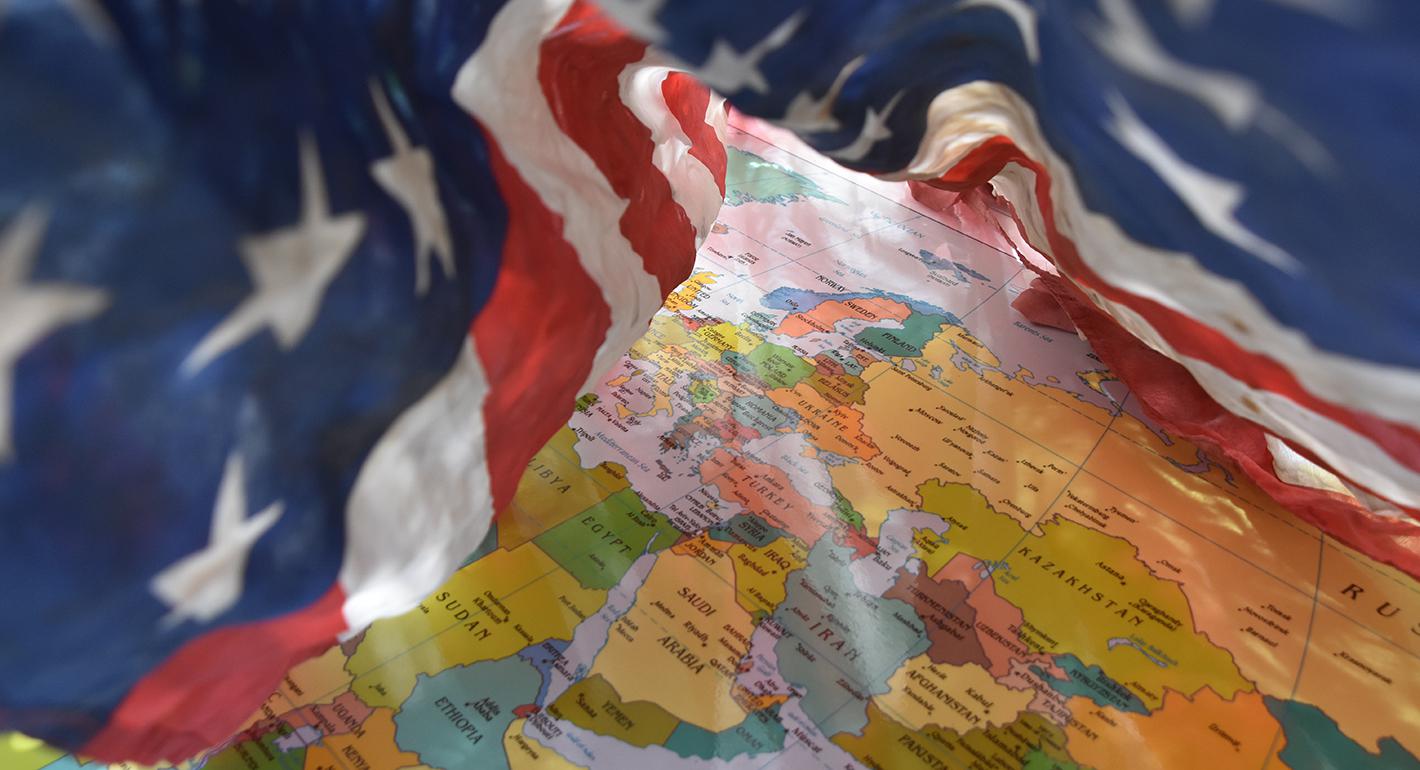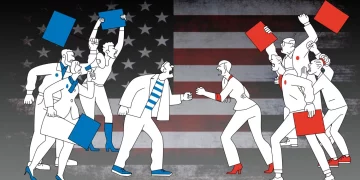In the 21st century, democracy, once hailed as the beacon of human political aspiration, faces unprecedented challenges. Globalization, technological disruption, authoritarian resurgence, and cultural fragmentation have converged to put democratic ideals under pressure. The horizon of democracy—the broad, inclusive possibility for political self-determination—is increasingly questioned. Is it shrinking? And if so, why? This article examines the multidimensional dynamics shaping democracy today, offering insights that are both rigorous and accessible.
The Expanding Promise of Democracy: A Brief Retrospective
For much of the 20th century, the global trajectory of democracy appeared linear: World War II, the decolonization process, and the collapse of the Soviet Union were milestones in an expanding democratic world. The “third wave” of democratization in the late 20th century, a term popularized by political scientist Samuel Huntington, underscored optimism that liberal democracy was the inevitable endpoint of political evolution.
Yet, history is rarely linear. While democratic norms expanded geographically, they often faced local resistance. Elections were held, but they did not always guarantee civil liberties. Constitutions were drafted, yet enforcement lagged. The early promise of democracy was both inspiring and fragile—a duality that continues to define global politics.
Signs of a Narrowing Horizon
1. Authoritarian Resurgence
One of the most striking developments of the past two decades is the global resurgence of authoritarianism. Countries once seen as democratic success stories now flirt with or fully embrace autocratic governance. Leaders in various regions manipulate legal frameworks, control media narratives, and limit civil society engagement—all while maintaining a façade of democracy.
This “soft authoritarianism” or “competitive authoritarianism” is particularly insidious because it retains the form of democracy while hollowing out its substance. Citizens may vote, but choices are manipulated, opposition voices silenced, and checks on power weakened.
2. Erosion of Democratic Norms
Even in established democracies, norms are under pressure. Polarization, political tribalism, and misinformation weaken the social contract underpinning democratic governance. In many countries, public trust in institutions is declining, and electoral integrity is questioned. The rise of populist movements often thrives on distrust, framing democratic institutions as corrupt or inefficient, which in turn narrows the space for reasoned civic debate.
3. Digital Disruption and Information Manipulation
Technology, once seen as a democratizing force, now complicates democratic horizons. Social media platforms enable unprecedented political engagement but also create echo chambers, amplify disinformation, and facilitate state-led surveillance. Algorithms reward sensationalism over deliberation, shifting focus from rational policy debate to emotive and polarized engagement.
Authoritarian governments have also adapted digital tools for social control. From facial recognition to AI-driven censorship, the technological landscape increasingly favors regimes that prioritize control over freedom.
4. Economic Inequality and Democratic Fragility
Democracy is not solely a political construct; it depends on economic foundations. Persistent economic inequality undermines social cohesion and limits meaningful participation. Citizens who feel excluded from economic opportunities may disengage from democratic processes or support anti-democratic populists promising rapid change.
Globalization exacerbates this divide. While some benefit from integrated markets, others face job insecurity, wage stagnation, and cultural displacement. The perception that democracy benefits only an elite few can narrow citizens’ faith in its legitimacy.

Regional Dynamics and Global Patterns
Western Democracies: Backsliding in the Heartland
Even countries considered democratic exemplars are not immune. In recent years, democratic backsliding in parts of Europe and North America has highlighted the fragility of institutions once taken for granted. Judicial independence is tested, media freedom faces political pressure, and gerrymandering or voter suppression tactics subtly erode the democratic foundation.
The irony is striking: while these nations historically promoted democracy abroad, domestic pressures reveal that democracy is a constant project, not a finished achievement.
Asia and the “Managed Democracy”
In Asia, a mix of economic dynamism and political control characterizes many states. Countries like China and Vietnam demonstrate that prosperity can coexist with strict political control. In India, debates around minority rights, media freedom, and electoral integrity show that even large democracies are not immune to erosion.
This has implications beyond national borders: when regional powers maintain authoritarian or hybrid systems yet achieve economic success, they challenge the assumption that democracy is the only path to legitimacy.
Africa and Latin America: Contested Horizons
Africa and Latin America illustrate the complexity of democratic development. While some countries have made significant democratic strides, others face recurring coups, corruption scandals, and institutional weaknesses. Democracy in these regions is often episodic—achievements are made, then partially rolled back. This cyclical nature underscores how democracy’s horizon is contingent on local historical, cultural, and economic contexts.
Factors Contributing to Democratic Narrowing
1. Geopolitical Tensions
Rising geopolitical competition, particularly between liberal democracies and authoritarian powers, places democracy in a precarious position. Trade wars, cyber operations, and information warfare not only affect global stability but also provide authoritarian governments with models for countering democratic influence.
2. Ideological Competition
The global ideological landscape is shifting. Liberal democracy is no longer the uncontested gold standard. Alternative models, emphasizing stability and economic development over individual freedoms, are increasingly visible and, in some cases, attractive.
3. Crisis of Legitimacy
Democracy relies on legitimacy: the shared belief that political institutions represent the people’s will. When citizens perceive corruption, inefficiency, or elitism, legitimacy erodes. Protests, populist movements, and radicalization often follow, narrowing the democratic space and creating openings for authoritarian alternatives.
4. Environmental and Humanitarian Pressures
Climate change, pandemics, and mass migrations pose unique challenges. Democracies, which require deliberation and consensus-building, may struggle to respond swiftly. Authoritarian regimes, by contrast, can act decisively—sometimes giving the impression of superior problem-solving. This functional advantage, real or perceived, can make democratic governance seem less effective and less appealing.

Can Democracy Adapt? Pathways Forward
Despite these pressures, democracy is resilient—but adaptation is essential. Several strategies could expand its horizon rather than letting it contract.
1. Reinforcing Institutional Checks and Balances
Strong institutions remain the cornerstone of democracy. Courts, parliaments, and independent electoral bodies must resist political interference. Institutional integrity, even in times of crisis, can provide stability and maintain citizen trust.
2. Enhancing Civic Literacy and Engagement
Democracy thrives when citizens are informed and engaged. Educational initiatives that promote critical thinking, media literacy, and participatory governance can mitigate the corrosive effects of polarization and misinformation.
3. Leveraging Technology Responsibly
Digital tools should be harnessed to strengthen democratic participation, transparency, and accountability rather than control. Open-source platforms, secure digital voting, and data transparency initiatives can empower citizens while countering authoritarian digital tactics.
4. Addressing Economic and Social Inequalities
Democracy’s legitimacy depends on broad-based prosperity. Policies that reduce inequality, expand access to quality healthcare, education, and employment, and promote inclusive growth are essential. When citizens feel included, democratic horizons widen rather than shrink.
5. Global Cooperation and Norm Reinforcement
Democracy is not solely domestic; it exists in a global context. Multilateral cooperation, human rights advocacy, and international legal frameworks can support democratic resilience. Sharing best practices, monitoring electoral integrity, and providing development assistance help prevent democratic erosion from taking root.
A Complex Picture: Shrinking or Shifting?
So, is democracy’s horizon truly narrowing? The answer is nuanced. In some regions, yes: authoritarianism, polarization, and technological manipulation are real constraints. In others, democracy is evolving, adapting to local realities, and finding new pathways to legitimacy.
The horizon is not disappearing—it is shifting. It requires deeper citizen engagement, institutional reform, economic inclusion, and technological adaptation. Democracy is no longer a static endpoint; it is a dynamic process, one that must respond to global pressures while remaining grounded in the principle of citizen sovereignty.
Conclusion
The question of democracy’s future is not merely academic—it is profoundly practical. The narrowing of its horizon in certain regions and contexts is alarming, yet the potential for renewal remains. History reminds us that democracy is neither inevitable nor permanent; it is fragile but resilient, contingent on vigilance, adaptation, and innovation.
Global politics is in flux, and democracy must navigate this turbulent terrain. The challenge is to ensure that the horizon does not merely narrow but expands to include more voices, more perspectives, and more possibilities. By understanding the forces at play and responding strategically, the world can ensure that democracy remains a living, breathing experiment in human self-governance—a horizon that, far from shrinking, continues to stretch into the future.























